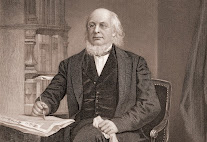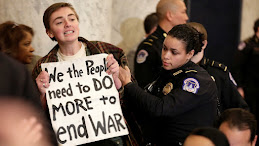I Dare You To Disagree
"Good Night, and Good Luck" is a movie based off of a true story by George Clooney that portrays the tensions between the news and the government during the Red Scare of the 1940s and 50s. It circulates around CBS reporter, Edward R. Murrow, who states from the beginning that television and the media are a distraction and distort our perception of the world.
What sparked this tension is Joseph McCarthy's rash campaign to weed out communists in America. Edward Murrow, enraged by this, dedicates himself to exploiting and addressing the unjust decisions and actions of McCarthy's "investigation." Thankfully, Murrow had the support of his entire news team and together they worked tirelessly to shed light on the senator's lies, excuses, and bias. In the midst of this, Murrow and his team are greeted with constant pressure and threats from CBS corporate sponsors to desist. But they don't. Murrow and his team were committed to delivering the honest truth.The entire story illustrates the tensions between patriotism and punishing, fear and informational integrity, and personal morals. It highlights the biased and arguably wrongful decision the court came to and how it accused people of communist relations without due process. Even though political affiliation was a touchy subject at the time (and still today) an accusation is not proof.
Murrow and others advocated through their stories and reports for a fair trial to defend the freedom of those accused. The entire situation stemmed from fear. Fear that was provoked by the government and false media. It even got to a point where McCarthy was exposed for stating that anyone who disagreed with him or his senate was a communist. That doesn't seem very fair to me. It didn't seem fair to Murrow either.
Murrow and his team were on a quest for the truth. The honest truth. The truth that the American people deserve. This kind of advocacy and dedication to uncovering the truth is exactly the kind of journalism we need. We need more writers and journalists like Murrow to have the passion and drive for delivering the truth. This film, at least in my opinion, is extremely applicable today. As political tensions, polarization, bias, and unjust rise, we need more people willing to uncover and expose the truth. This film also affirmed to me why I chose journalism. There are of course risks to delivering the truth, as we see Murrow being threatened to lose his job, but it is a moral and ethical obligation of journalists to deliver the truth and I'm willing to take that. It's difficult and intimidating for journalists to disagree with the government, and it's rare. But, if all of the ideas, opinions, and interpretations of the government's doings are not on the table, then we are not a democracy.
I believe the bigger issue Murrow and his team saw with this case was that it dwindled down to the true meaning of democracy, liberty, and freedom. The very things America was built on and because of his efforts to expose the truth, people were given fair trials and their truths were uncovered too.
I think for me and for other aspiring journalists, we need to be more willing to disagree. We have to be willing, daring, and courageous enough to ditch what the government and media giants feed us and truly seek to uncover the truth for the betterment of others. It's a lesson we could learn from Murrow and it's a lesson that I think applies far beyond journalism.




















